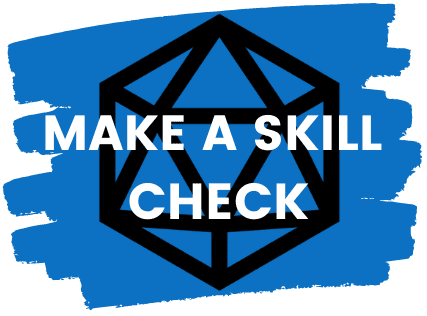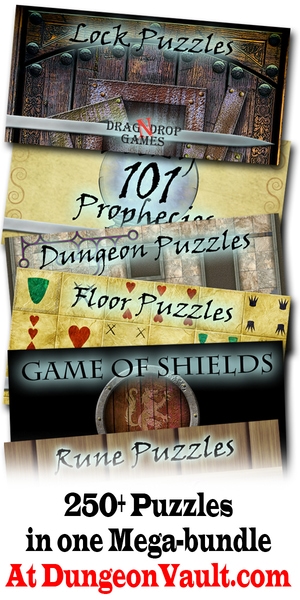You accepted the challenge: next game, you’ll be the Dungeon Master.
What now? Where should you start? DMing is hard. All those articles and Youtube videos were full of useful stuff, but now your head is swimming.
Relax, grab a drink, and let me walk you through my 10 fundamental tips to give to a new DM:
Start small; develop the world as you go. You should also be enjoying yourself when playing. Take inspiration from everywhere. Don’t bother studying the rulebook; study key basics, then learn as you go. Embrace chaos, stop the game when needed, and adapt the world to the party.
Now that you’ve got the overview, let’s take a more in-depth look.

Table of Contents
1) Start Small
The most important tip that I can give you it’s not just to start small. Start as small as possible. Many new DMs crumble under the expectation of running a sprawling, epic campaign spanning levels 1 to 20. This isn’t required. Besides, 90% of campaigns end before level 10. (Source)
Begin with something simple. A one-shot adventure, like a five-room dungeon. There’re so many benefits to this approach.
- Less prep to do, less pressure: Since you’re just beginning, you’ll have a lot of stuff to get used to. Don’t overcomplicate it.
- Probe the waters: A small adventure is the simplest way to see if everyone involved is on the same page; yes, a session zero can help with some of the fundamentals, but that doesn’t address group dynamics. See if this party works, if there’s a good mood at the table, and if they’re having fun. Not all groups are for D&D; maybe they’re happy just hanging out.
- It’s not the end: Who says that a one-shot must end there? If you all had fun, no one is stopping you from continuing. That’s how my biggest campaign started.
2) You are a Player, too
I once had an argument with a fellow DM.
He argued that his role as Dungeon Master was something completely different from the player’s and that he didn’t abide by the same rules.
Yes, that is true to a certain extent. DMs and players have different roles in the game but in the end, when we sit down around the table, we’re all players. We are also there to play a game and have fun.
It’s not just the DM’s responsibility to make sure that everyone is having an enjoyable experience; it’s also the player’s. The DM has to make sure that the game has something interesting to offer to each of her players (DM included).
At the same time, players should be mindful of everyone else at the table. Avoid stealing the spotlight, steamrolling the shy ones, and falling into pointless arguments.
3) You Don’t Need to be Original
“My ideas are not original!” is the common refrain I hear from aspiring DMs. Well, don’t worry because neither are mine, and every idea we can come up with is playing off of some cliche.
You’re not supposed to write the next big American novel. You’re writing a game to enjoy with your friends, and no one is here to make a review. (And if they do, they shouldn’t, thanks.)
Don’t shy away from tropes of the genre: goblin ambushes, the wise old wizard, the dragon & the princess.
Maybe now you’re thinking: “But my players have already seen those things a hundred times!”
Yes, but they never played them. If you are DMing for newer players, they will be enthusiastic about playing those situations. It’s different when your actions can affect the outcomes.
Besides, the great thing about newer (and older, to an extent) players is that they will be just happy to play at all.
But what if your players are all experienced? Then use expectations to your advantage. Instead of buying in, twist tropes in unanticipated ways. Save the goblins from the ambush, help that idiot of a wizard, and rescue the beautiful dragon from the horrible princess.
4) Steal Shamelessly
That’s the great secret of every creative; you don’t have to reinvent the wheel. Let the stuff you like inspire you… and steal it!
It’s your home game, after all. No one is going to come and get you for copyright infringement. Plots, monsters, settings, characters – take inspiration from everything.
This tip comes alongside a warning: avoid being too on the nose.
Don’t lift directly, but take themes or scenes, spice them with your own flavor.
Don’t just put a Way of the Sun Soul monk in your game and call it Goku. A respectful nod is fun for your players to recognize and enjoy. A complete knock-off breaks the suspension of disbelief. Do it if you think it fits, like in an absurd, comedic game, but it’s best to avoid in grimdark settings.
The only exception might be encapsulated in this quote: “Steal from something everybody knows, and you are a thief. Steal from something that no one knows, and you are a genius.”
5) Put the Stuff You Like in the Game
If you want your players to be excited to play in your game, you need to be excited to begin with. Leonardo, a fellow writer here, also promotes the same sentiment in his post on building immersion.
If they see you in a good mood, they will typically follow. The easiest way to be excited about your own game is to fill it with stuff you like. This is how going first works in hypnosis; change your own emotional state, and it’ll be easier for others to meet you there.
If you, like me, love tactical combat, design an awesome set-piece battle that you can’t wait to roll Initiative for. If you are more of a dramatic DM, then write some fun-to-play NPCs, like Angus McDonald from The Adventure Zone. Only you can know what makes you excited.
That said, don’t forget about your players. If you are the only one who’s excited for your highly political plot of schemes and murders, then you need to have a chat with your players. Be sure that everyone at the table has something of interest.
Again, these are things to discuss in a session zero, covered in-depth here.
Looking to challenge your players?
Puzzles and Riddles can be tricky! Too easy and they’re pointless; Too hard and it’s pure frustration. What is a DM to do?
Well, our friends over at Dungeon Vault have an assortment of puzzles, riddles, and tokens to enhance your gaming experience. They even have a murder mystery and a political intrigue system!
For easy-to-use resources for any D&D game, check out the selections at Dungeon Vault!
6) You Don’t Need to Memorise the Rules
D&D, and RPGs in general, embraced a truly uphill challenge: creating a rule system capable of simulating real life.
In the impossible task of attempting to cover the innumerable aspects of reality, D&D has a laundry list of rules. Trying to memorize all those tiny edge cases before even starting to play is impossible.
Flying in the face of another article on this site, my unpopular advice is: don’t even try to memorize them. Watch other people play, play with those people, and learn by doing. Then, jump right into DMing. If you’re waiting to be ready, you’ll never be.
To start DMing, you just need the basics: how ability scores work, a vague idea of combat, and how to cast a spell. If you know that, it’s enough to start. Learn as you go.

Rules are there as instruments, but your best guess is as good as them if it keeps the fun going.
If all your players are absolute beginners, you will all learn the rules little by little. On the flip side, if there are veterans within your ranks, ask for their help when in doubt.
That said, you need to learn them eventually. Read them little by little when they come up in the game and do your best to keep them in mind, or keep them pinned to your DM board.
Nothing is more frustrating than a DM that still doesn’t know the rules after dozens of games.
7) Don’t Worry About the World
Maybe the second biggest excuse for never starting DMing is “My world isn’t ready yet.” In a certain sense, this is not much different from “I don’t know all the rules yet.” They’re both excuses.
Worldbuilding should be fun, but it should never be at the expense of actually playing. Prepare just enough for you to run, and let be the players be the ones who breathe life in your world. Make it collaborative and incorporate them into the history as their adventures continue.
In other words:
- Players before World, Always: It’s the game world at the service of the players and not the other way around. Remember that you, the DM, are the one telling the story, but it’s the player’s story. The world should be in service of their needs and, at the same time, it should pose a reasonable challenge to their objectives. The “rules of your world” should be a tool to create dramatic tension instead of a dreaded railroad that limits player agency;
- The Iceberg Theory of Worldbuilding: Fantasy author Brandon Sanderson said in his BYU 2020 lecture on creative writing that the world in his books is like a hollow iceberg. He does just enough work to give the illusion to the reader that there’s much more to discover than what the pages reveal. Like a massive iceberg floating under the surface. At the same time, the iceberg is hollow because he does the bare minimum to tell his story in a satisfying way.
Frighten Your Players
In a dark room, Jon is on the edge of his seat. He’s afraid his next act will be his doom.
Everyone holds their breath—except you, the DM. You enjoy watching them sweat as tension comes to a head.
“Do something!” Sara shouts, causing everyone to jump. Rattled, Jon does something stupid.
For less than a Starbucks coffee, gift a thrilling night for you and your crew;
Check out Weeping Walls, our haunted house intended to fit into any campaign.
8) Embrace the Chaos
What if my players go off script?
Players are notorious agents of chaos: You can think of ten ways they will solve a problem, and undoubtedly they come up with an eleventh.
My advice is simple: roll with it. Embrace the chaos. Once again, players are the ones who breathe life into your world. Without them, there’s no game. It’s the most fun for me, as a DM, to be amazed by the crazy solutions my players come up with.
It’s what makes the game memorable. If you want players to always do as expected, go write a novel.
9) Stop the Game When Needed
Keeping in mind what we’ve said so far, now let’s get serious for a moment.
To make sure everyone has an enjoyable experience, talking about boundaries with your players should be an open dialogue. Beating that dead horse: the ground rules should be discussed during your session zero.
Let them know what is explicitly not cool in your game. If the game ever goes in that unpleasant direction, stop and clarify.
I’ve heard horror stories of DMs who feared that stopping and addressing the problem right away would break the suspension of disbelief, but overlooking the fact that making players genuinely uncomfortable will do the very same thing. While suspension of disbelief is important, it is not sacred.
If the game ever goes south–stop, clarify, and hop right into the action.
Remember: a roller coaster is fun because of the illusion of danger but with some assurances of safety. The same goes for D&D – you don’t want anyone feeling genuinely disrespected or threatened.
10) A Balanced Party is an Illusion
Some newer DMs (usually the ones who spent more time studying the PHB, instead of playing the game) tend to be obsessed with having a “balanced party.”
My last advice is simple: there’s no such thing as a balanced party.
The idea of a four-player group with a melee fighter, a spell caster, a support, and a skill monkey is more related to video games than RPGs.
You can run amazing games with just two players. They can be a fighter and a paladin. Who cares that there’s no dedicated spellcaster? Who cares that they have zero stealth? They’ll solve problems their own way, and it will be a sight to see.
Heck, this very example is how my dearest campaign began. And those two morons of a fighter and a paladin solved their way to level 20. (Mostly with Alchemist’s Fire.)
As well, you can adjust encounters as you go, playing the enemies smarter or dumber, depending on the tide of combat and the vibe you want to give your players. Want them to feel strong? Make your enemies stupid, crowding together and not using any tactics. Want the party to feel weak and outgunned? Play your enemies smart and on their own ground. Think Tucker’s Kobolds.
Summary
If you are a new aspiring DM, congratulations! Relax—D&D is only a game, and everyone at the table is there to have a good time. Here are some basic tips:

- Start small: Do the bare minimum to start playing. A simple one-shot or short dungeon will be enough.
- You are a player, too: You have the same rights and duties as every other person at the table. To have fun and facilitate others’ fun.
- You don’t need to be original: Tropes are not a bad thing. Newer players will still find them fun. For the more navigated ones tropes are a tool you can use to subvert expectations.
- Steal, shamelessly: Steal ideas from the media you love; you don’t need to reinvent the wheel for a home game. Just be sure to put your twist on it. A total rip-off can destroy immersion.
- Incorporate your interests into the game: You need to be excited to run the game well. If you like fights, design a great boss battle. If you like intrigue, create memorable NPCs. Be sure your players are on board, too.
- You don’t need to memorize every rule: Just the basics are enough to start. Run the game and learn the rules alongside your players. Ask for help from the more experienced ones.
- Don’t worry about the world: Don’t get crushed under the expectations of deep lore. Only write what is fun for you to run or the bare minimum for keeping the game moving. The real star of the show is the party.
- Embrace the chaos: Whenever players go off script is when memorable things happen. Embrace these moments—they are the ones you’ll remember the most.
- Stop the game when needed: Suspension of disbelief is not sacred. Stop the game if there’s something problematic and address problems early on. It’s best to set the foundational rules during a session zero (article here).
- Balanced parties are an illusion: You can have great games with less than four players; in fact, you can play with only one (read more here). They’ll solve problems their way, and you can always tweak the challenges and adapt them to your team by making opponents more or less intelligent (See Tucker’s Kobolds)







0 Comments